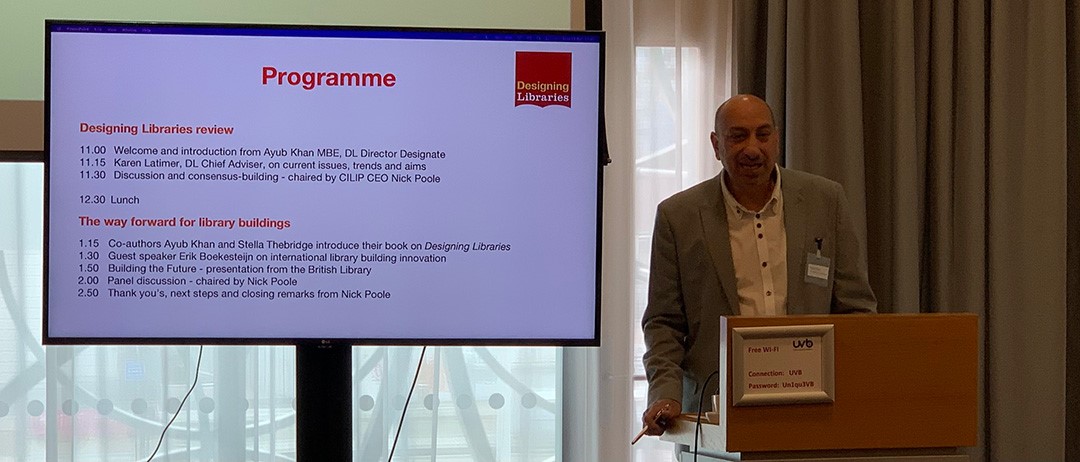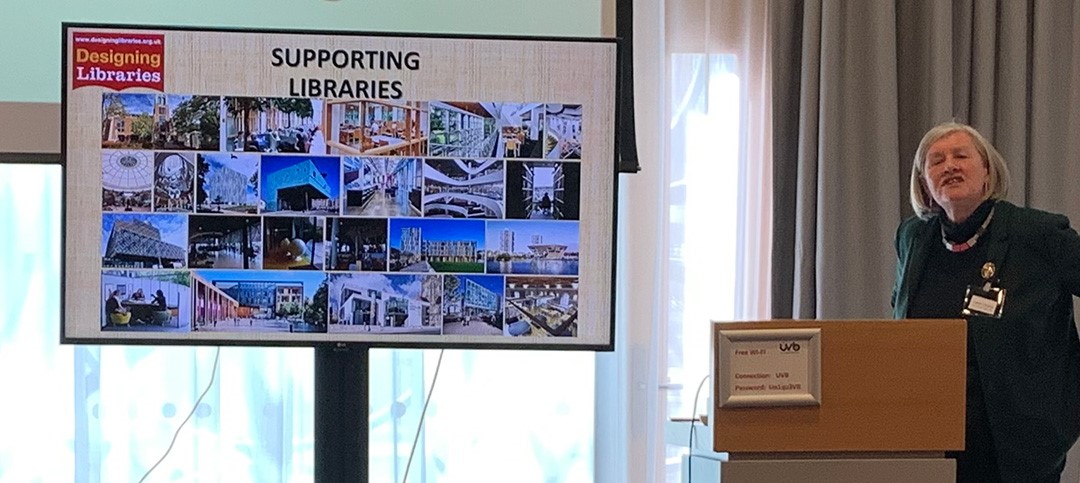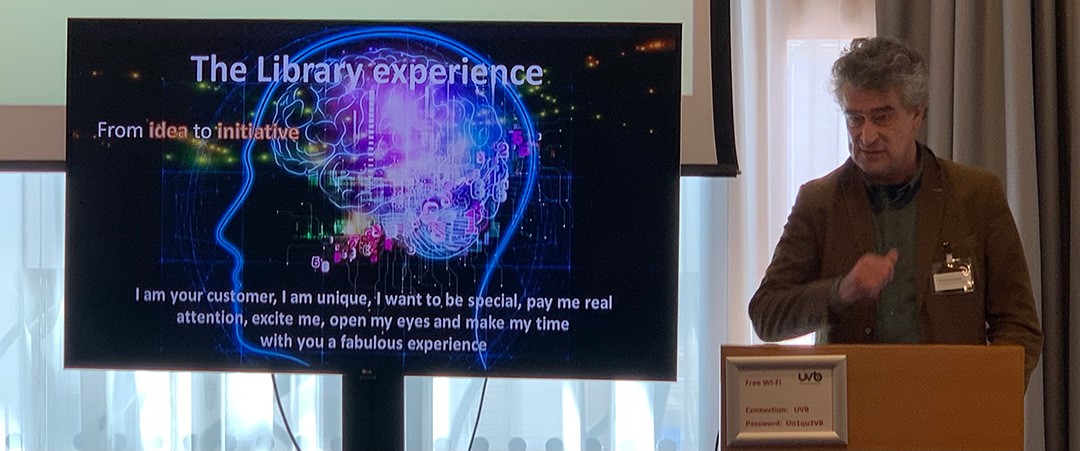Designing Libraries Round Table
Event held at the Library of Birmingham on April 11th 2022
14 Apr 2022

A Round Table event at the Library of Birmingham on April 11th considered the best ways forward for the Designing Libraries (DL) website, following the retirement, due to ill-health, of the previous Director and driving force David Lindley, who received a round of applause from delegates. No-one knew that David had sadly died on March 18th - but, in retrospect, it made the ovation all the more fitting.
23 delegates - representing sector organisations, allied professions, suppliers and sponsors - attended the event and made a number of observations and recommendations for the website’s future direction and content. They suggested five potential workstreams for further exploration: inspiration, advocacy, education, marketplace and community.
In addition to the main business of the day, delegates heard from influential speakers who gave their take on the future for library design more widely:
Ayub Khan
DL’s new Director Designate, Ayub Khan MBE, welcomed delegates, introduced the event programme, and outlined his involvement in the initial design concepts and business planning for the day’s venue - the new Library of Birmingham. He then talked about contextual factors that would inevitably have an impact on future library design - both new-build and refurbishment projects. These included public perceptions around proximity and risk following the coronavirus pandemic, and the urgent need to mitigate the worst effects of climate change.
Karen Latimer
DL Chief Adviser Karen Latimer outlined the website’s history, purpose and aims and explained why it was being reviewed - to make sure it continued to be both fit-for-purpose and sustainable. Karen talked about current trends that had a bearing on library design, including: pandemic issues, wellbeing and biophilic design, reusing old buildings, co-location, regeneration, revitalising High Streets and the impact of digital technology. She shared examples of new libraries from around the world and focused on the need for post-occupancy evaluation to measure qualitative outcomes - and show how better spaces enable better experiences.

Erik Boekesteijn
Guest speaker Erik Boekesteijn, from the National Library of the Netherlands, gave a beautifully-illustrated and mind-blowing presentation on Designing Future Libraries as spaces for all. As well as showing some exciting and innovative library designs, Erik shared some thought-provoking ideas about what libraries should aim to do and be. For example, he talked about open, inspiring and inclusive environments, giving customers a “fabulous” experience, humans as biohazards, the ethical challenges presented by technology, trusting machines, the potential of AI, and the library as a “theatre of issues” and “place to practice being human”.

British Library
There was a presentation from Jerry Shilito about the British Library’s commercially-funded development plans to create 100,000 sq ft of mixed-use space - including new galleries, a learning centre, more event and commercial space, as well as capacity to grow BL’s offer to businesses. In addition, the plans provide the Alan Turing Institute with a permanent HQ. Jerry focused on plans for the Library’s foyer - “a welcoming, multi-functional, diverse and vibrant space for everyone”. He talked about some of the challenges associated with operating a large, multi-functional space, working with commercial partners and tenants, balancing public and commercial priorities, and future-proofing the design.
Finally
Co-authors Ayub Khan and Stella Thebridge talked about their soon-to-be-published revised edition of ‘Better by Design - an Introduction to Planning and Designing a New Library Building’. The updated edition takes a fresh look at the topic through today’s eyes, within the context of current challenges.

After the Round Table event Ayub said: “It was an interesting, thought-provoking and productive day that gave the DL team some valuable steer on where the website needs to go next, and what it should aim to achieve. We will now develop an action plan to take the recommendations forward and present it to the Round Table group for approval.”